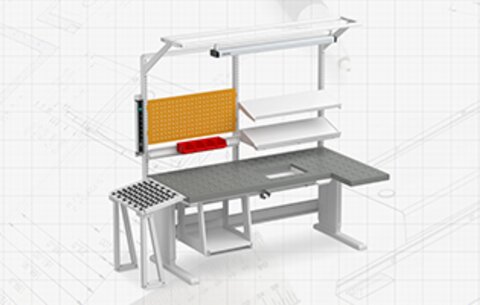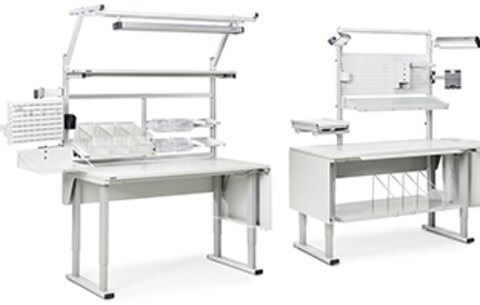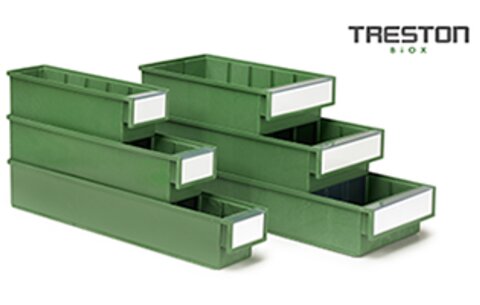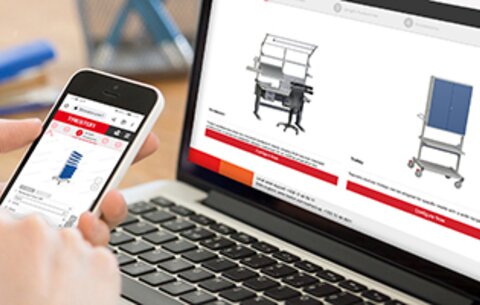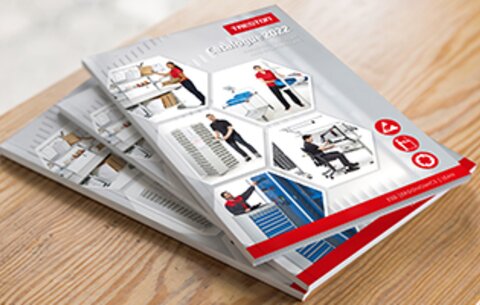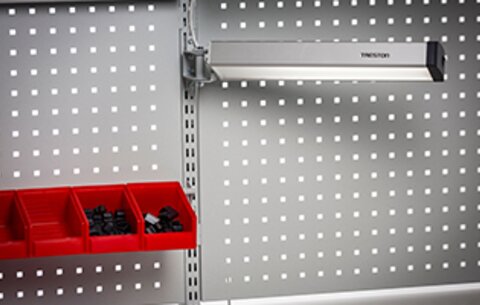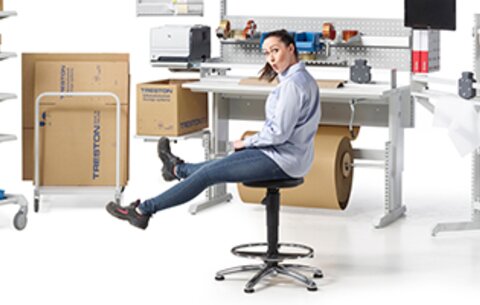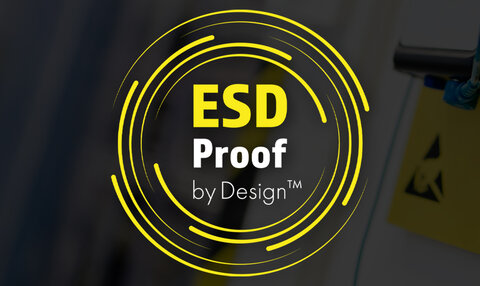Treston has roots going back more than 100 years
Treston is a combination of the traditions and resources of two powerful companies: Treston Oy, which was founded in 1969, and Sovella Oy, which has roots going back to 1876 and the family-owned company G.W.Sohlberg. Starting from 2011, we have worked together in Treston Group, and became Treston through a merger in 2015.
1876: GWS was founded
The oldest company that is now part of the current company of Treston is GWS, which was founded in 1876. Originally it was a tinsmith’s workshop set up and operated by master tinsmith Gabriel Wilhelm Sohlberg in the district of Punavuori in Helsinki. The humble workshop’s path towards becoming an industrial corporation began in 1909, when GWS started to manufacture tin boxes for products such as coffee, sweets, and fish, to meet the food industry’s growing needs.
1930s: GWS started to manufacture workplace furniture

In the 1930s, GWS started to manufacture metal furniture for offices and workplaces. In post-WWII industrialising Finland, manufacturing workplace furniture was a successful business and, by the 1950s, it had become the main product group at GWS. The manufacturing of furniture designed for industrial use also began in the 1950s. At that time, GWS was especially known for the lockers and filing cabinets it manufactured for use in factories.
In the 1960s, GWS developed a series of storage furniture for household use, and the name Sovella was introduced for the first time. By the 1970s, the company had also started to manufacture beer cans. With the easing of trade restrictions on medium-strength beer, crown caps and bottle openers were a huge hit for a long time in Finland.
In 1974, the manufacturing of industrial furniture was moved from Helsinki to Jyväskylä, to the premises of a new factory, and from then on, the management of GWS was based in Jyväskylä.
1969: Treston began operations in the plastic industry

In 1969, in another part of Finland, Vaasan Höyrymylly and MK-Tuote jointly set up Treston, and a factory was built in Turku. Vaasan Höyrymylly had the objective of finding a new foothold alongside its food industry operations, which remained regulated at the time. Plastic was seen as an industry for the future, and the targets were set high. The first products produced by Treston were plastic bins and drawer units for storing small items made by injection moulding.
However, the company’s real hit product in the 1970s was Palaset, which was a plastic cube intended to serve as an interior design element for young families. Palaset evolved into shelves and tables in a variety of colours that matched the design aesthetics of that time. Palaset was also a successful export product, which led to Treston directing its resources strongly into the export market.
After the success of Palaset faded, Treston developed an assembly workstation, the operation of which was based on the paternoster principle, and the company also expanded for the first time into manufacturing workbenches. Treston also acquired Ergofinn Oy, a company that developed and manufactured industrial workbenches. In the late 1970s, Treston also set up a product line for industrial furniture.
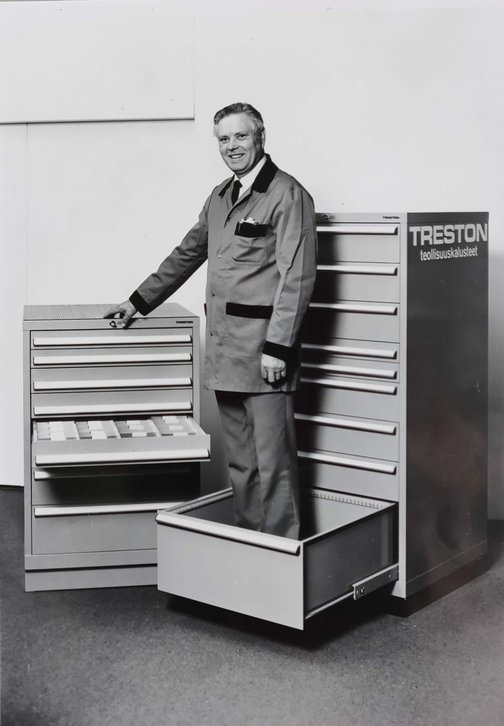
1980s: Internationalisation was launched in both companies
In the 1980s, Treston focused its investments on the production of furniture for light industry and on the expansion of its export operations, in particular by expanding its network of subsidiaries. Distribution channels were established in Germany and the UK.
On the other hand, GWS Systems focused on developing its furniture business for heavy industry, including the TK 75 industrial furniture system, which became a market leader in Finland. In the 1980s, GWS set up sales companies in Germany and France.
Internationalisation continued during the 1990s. GWS set up a sales company in the United States. The focus of both companies was now heavily on the manufacturing of furniture for industry, but with slightly different priorities. At Treston, the focus was on manufacturing furniture for use by light industry, whereas GWS Systems was better known among heavy industry operators.
In 2004, G.W. Sohlberg gave up GWS Systems Oy, and the company was sold to the executive management. The company’s name was changed to Sovella Oy in 2007, since when all the company’s products have had the brand name Sovella in their name.
2011: Paths cross
By 2011, Treston and Sovella were both privately owned Finnish companies. Rivals, but with slightly different priorities. Both medium-sized, but known and respected in their field, including at international level.
Finally, the histories of these two companies came together, when Treston Oy acquired the entire stock of Sovella Oy in early 2011. The ownership base of the new, larger group was further expanded at the end of the same year, and the independent private equity company Sentica Partners became its main owner.
Treston and Sovella merged at the beginning of 2015, since when the company has operated under the name Treston Oy as one of the world’s leading suppliers of industrial furniture and workstations. Our factories are still located in Finland, in the cities of Jyväskylä and Turku. Today, Treston Group has subsidiaries in six countries: Germany, France, the UK, Sweden, Russia, and the United States. The Sovella brand is also still alive in the name of the storage systems that are sold for households and public spaces. All our subsidiaries currently operate under the Treston brand, and all the products that are sold to industry represent the strong Treston trademark.

